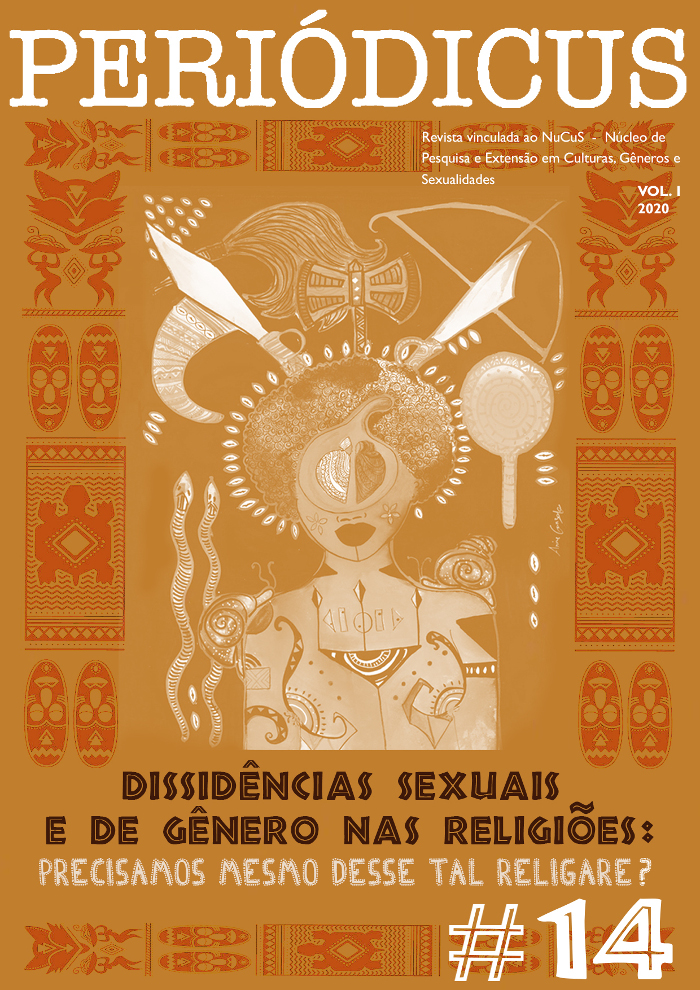When an analytical category enters the xirê: thinking about gender from Candomblé
DOI:
https://doi.org/10.9771/peri.v1i14.36666Abstract
The construction of gender as an analytical category enabled an important theoretical and methodological means to think about the process of becoming aware of the ideologies of capitalist cisheteropatriarchy. On the other hand, this notion, challenged and disseminated to feminism studies for a long time and based on the life of white European women, did not allow to gaze at other experiences and situated knowledge produced mainly by African, African Americans and Amerindian women. At this epistemic crossroads, the narratives of people practicing Candomblé on the themes of gender and sexuality provide us with an immeasurable set of experiences from different bodies that transit in these spaces and fissure the universalist character of the concept of gender to think social relations. This study briefly reflects on this category in Candomblé based on the contributions of Oyèronké Oyěwùmí, bringing to the debate some dynamics of Candomblé, Afro-Brazilian religion, and other theoretical possibilities for understanding society based on the dynamics of matripotence, seniority or relative age and the Orixás trance.Downloads
Downloads
Published
How to Cite
Issue
Section
License
Copyright (c) 2021 Almerson Passos

This work is licensed under a Creative Commons Attribution-NonCommercial 4.0 International License.
Autores que publicam nesta revista concordam com os seguintes termos:
Autores mantêm os direitos autorais e concedem à revista o direito de primeira publicação, com o trabalho simultaneamente licenciado sob Licença Creative Commons Attribution Noncommercial que permite o compartilhamento do trabalho com reconhecimento da autoria e publicação inicial nesta revista, sendo vedado o uso com fins comerciais.
Autores têm autorização para assumir contratos adicionais separadamente, para distribuição não-exclusiva da versão do trabalho publicada nesta revista (ex.: publicar em repositório institucional ou como capítulo de livro), com reconhecimento de autoria e publicação inicial nesta revista.
Autores têm permissão e são estimulados a publicar e distribuir seu trabalho online (ex.: em repositórios institucionais ou na sua página pessoal) a qualquer ponto antes ou durante o processo editorial, já que isso pode gerar alterações produtivas, bem como aumentar o impacto e a citação do trabalho publicado (Veja O Efeito do Acesso Livre).







